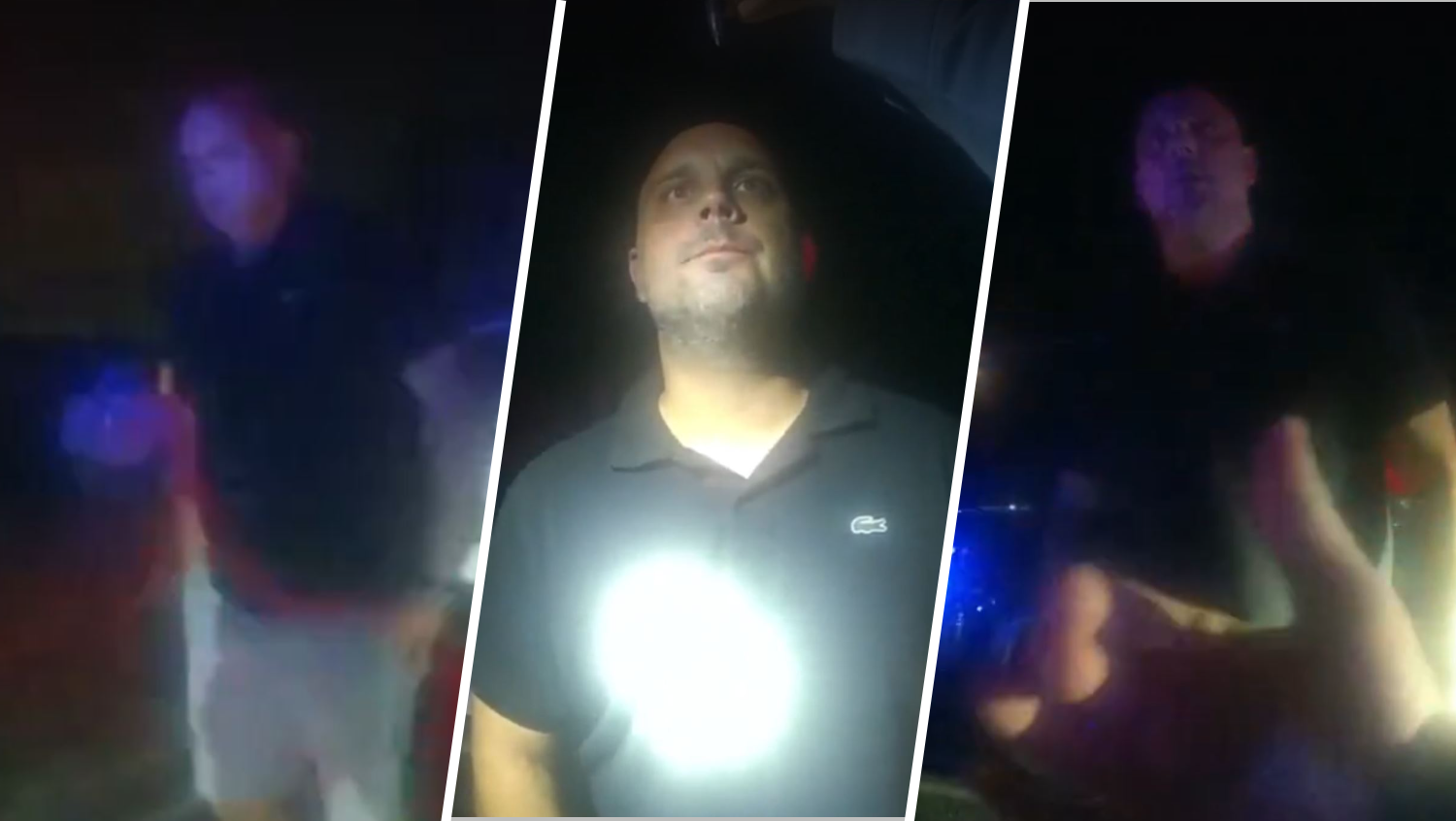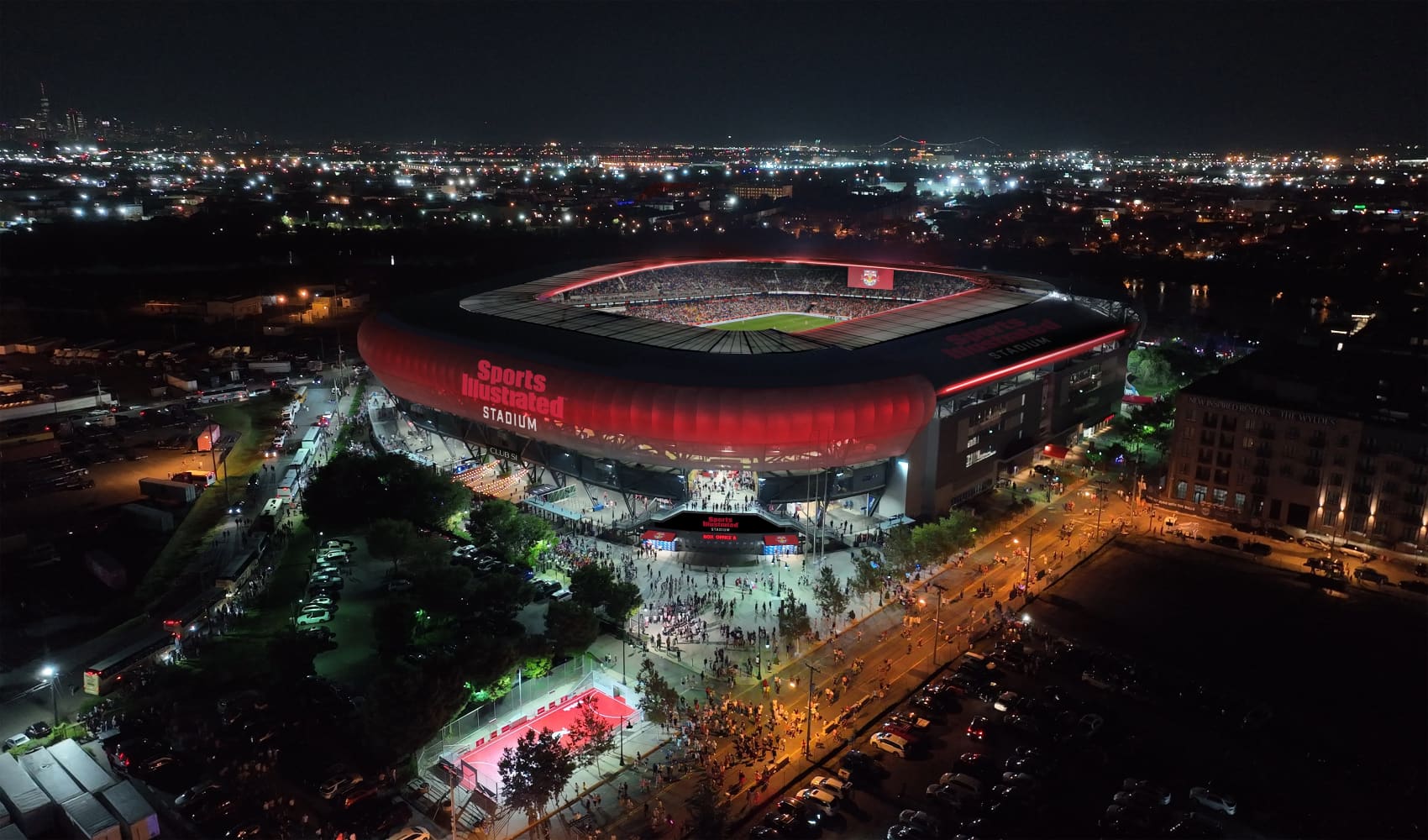More than 100 protesters were arrested Thursday afternoon after the president of Columbia University called on the NYPD to clear a group of protesters from the Morningside Heights campus' South Lawn, calling their action disruptive and dangerous to the college and community.
The protesters originally set up an encampment Wednesday morning on the South Lawn, ahead of Columbia University President Minouche Shafik's testimony before Congress about campus antisemitism in the wake of the Oct. 7 Hamas attack on Israel. A day later, Shafik reported to police that their continued presence was problematic.
The students had been opposing Israeli military action in Gaza and demanding the school divest from companies they claim “profit from Israeli apartheid."
More than 100 people were occupying the South Lawn at the time Shafik sent the letter Thursday. She said they ignored repeated written and oral warnings, starting Wednesday, that they were in violation of university rules and must disperse. Shafik also said all university students participating in the encampment had been suspended, and were thus trespassing on school property by their continued refusal to leave the lawn.
"I have determined that the encampment and related disruptions pose a clear and present danger to the substantial functioning of the University," Shafik wrote. "With great regret, we request the NYPD’s help to remove these individuals. We understand that the first step in this process will be for NYPD to use its LRAD technology to inform the participants in the encampment that they must disperse and give them time to leave prior to taking any additional action."
"We trust that you will take care and caution when removing any individual from our campus," she continued. "The safety and security of our community is our highest priority. We appreciate your commitment to assist us in a peaceful and respectful manner at this difficult time."
Get Tri-state area news delivered to your inbox.> Sign up for NBC New York's News Headlines newsletter.
Shafik also said the administration had engaged on the issues the group had raised and offered further discussion, pending the dissolution of the crowd.
Local
"Columbia is committed to allowing members of our community to engage in political expression – within established rules and with respect for the safety of all," she added. "The policies we have in place around demonstrations are in place to support both the right to expression and the safety and functioning of our University."
At a press conference Thursday evening, New York City Mayor Eric Adams said the NYPD made 108 arrests for trespassing, with two of those arrested also charged with obstruction of governmental administration. He also noted there was no violence or injuries during the demonstration, and those arrested were peaceful.
Pro-Palestinian protesters reorganized on campus a short time later, chanting, “Shame.”
“We demand full amnesty for all students disciplined for their involvement in the encampment or the movement for Palestinian liberation,” the protest coalition said in a statement.
A few dozen people, including Columbia students, later went to 1 Police Plaza to set up a table with snacks and water, serving as jail support for those taken into custody.
While it wasn't clear how many suspensions had been handed down by the school, the daughter of Democratic Rep. Ilhan Omar said she had been suspended from Barnard College, where she is a student, for taking part in the protest at Columbia. Isra Hirsi shared on social media that she had been suspended; Barnard did not comment on Hirsi in particular, but said any students who stayed at the encampment on the South Lawn would be suspended.
Rep. Omar was among those who grilled Columbia's president on Wednesday on Capitol Hill. During that time, she did not mention that her daughter was among the pro-Palestinian protesters.
Shakif's letter to Columbia community on disbanded protest
Here is the unedited text, as obtained via email:
"To the Columbia University community:
This morning, I had to make a decision that I hoped would never be necessary. I have always said that the safety of our community was my top priority and that we needed to preserve an environment where everyone could learn in a supportive context. Out of an abundance of concern for the safety of Columbia’s campus, I authorized the New York Police Department to begin clearing the encampment from the South Lawn of Morningside campus that had been set up by students in the early hours of Wednesday morning.
I took this extraordinary step because these are extraordinary circumstances. The individuals who established the encampment violated a long list of rules and policies. Through direct conversations and in writing, the university provided multiple notices of these violations, including a written warning at 7:15 p.m. on Wednesday notifying students who remained in the encampment as of 9:00 p.m. that they would face suspension pending investigation. We also tried through a number of channels to engage with their concerns and offered to continue discussions if they agreed to disperse.
I regret that all of these attempts to resolve the situation were rejected by the students involved. As a result, NYPD officers are now on campus and the process of clearing the encampment is underway.
Protests have a storied history at Columbia and are an essential component of free speech in America and on our campus. We work hard to balance the rights of students to express political views with the need to protect other students from rhetoric that amounts to harassment and discrimination. We updated our protest policy to allow demonstrations on very short notice and in prime locations in the middle of campus while still allowing students to get to class, and labs and libraries to operate. The current encampment violates all of the new policies, severely disrupts campus life, and creates a harassing and intimidating environment for many of our students.
Columbia is committed to academic freedom and to the opportunity for students and faculty to engage in political expression—within established rules and with respect for the safety of all. The policies we have in place around demonstrations are in place to support both the right to expression and the safety and functioning of our university.
Prior to taking this action, I complied with the requirements of Section 444 of the University Statutes.
This is a challenging moment and these are steps that I deeply regret having to take. I encourage us all to show compassion and remember the values of empathy and respect that draw us together as a Columbia community."
Sincerely,
Minouche Shafik
President, Columbia University in the City of New York
Antisemitism on college campuses
Roughly 24 hours earlier, Shafik took a firm stand against antisemitism as she parried accusations from Republicans who see Columbia campus as a hotbed of bias -- but she hedged on whether certain phrases invoked by some supporters of Palestinians rise to harassment.
She arrived on Capitol Hill four months after a similar hearing that led to the resignations of two Ivy League presidents.
From the start, Shafik took a more decisive stance than the presidents of Harvard and the University of Pennsylvania, who gave lawyerly answers when asked if calls for the genocide of Jews would violate school policies.
When asked the same question, Shafik and three other Columbia leaders responded unequivocally, yes. But Shafik waffled on specific phrases.
Rep. Lisa McClain, a Republican from Michigan, asked her if phrases such as “from the river to the sea, Palestine will be free ” or “long live intifada” are antisemitic.
“I hear them as such, some people don't,” Shafik said.
McClain posed the same question to David Schizer, who leads an antisemitism task force at Columbia. He responded that such phrases are antisemitic.
It was a shaky moment for an Ivy League president who otherwise dodged the gotcha moments that turned the previous hearing into a frenzy for Republicans, who cast elite schools as antisemitic havens. Shafik appeared to be ready for and handled questions very differently than other heads of schools.
Shafik acknowledged a rise in antisemitism since October but said campus leaders have been working tirelessly to protect students. Rebutting accusations that she has been soft on violators, Shafik said 15 students were suspended and six are on probation for violating new rules restricting campus demonstrations.
“These are more disciplinary actions than taken probably in the last decade at Columbia," she said. "And I promise you, from the messages I’m hearing from students, they are getting the message that violations will have consequences.”



